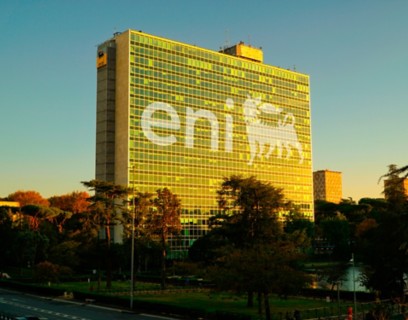
Or , our new artificial intelligence tool.
MyEni Login
Phytoremediation for the remediation of contaminated land
We use plants and special microorganisms to remove pollutants from soils.

What is phytoremediation?
We identify combinations of plants and microorganisms to clean soils of heavy metals and hydrocarbons. Thanks to the development of phytoremediation research, we bring polluted soils back to life through plants.
Heavy metals, organic and chlorinated compounds are pollutants that may be left behind in the soil as residues of industrial activities of the past. Reclaiming a site using traditional methods is not always the most sustainable solution both environmentally and in terms of CO2 emissions. Methods such as phytoremediation offer a lower-impact alternative.

Industrialisation
A large network of academic excellence and research centres
What is it for?
Phytoremediation is a natural remediation technique for contaminated soils that exploits the ability of certain plants to capture pollutants such as heavy metals and hydrocarbons degrading them. It can be used on brownfield sites and has several advantages: it does not cause any leaks of harmful substances, it does not produce CO2 emissions and it does not cause a nuisance to the environment or people. At the Eni Research Centre in San Donato Milanese, in collaboration with a large network of academic excellence and research centres, we study these methods to enhance the development and extraction capacity of plants and reduce the time required for each reclamation. Through Eni Rewind, phytoremediation is already normally used in environmental reclamation.
How does it work?
The polluted land is analysed and native plants are identified that have been shown to be able to survive on that land. These plant species are planted all over the area to be treated and their growth is stimulated with soil conditioners (a combination of nutrients and bacteria). These plants absorb substances from the soil through their roots. More specifically, they can capture excess heavy metals, bringing their concentration back within the legal limits. Not only that, thanks to microorganisms living in symbiosis with the root system, plants can degrade hydrocarbons dispersed in the soil, reusing them in their own biological cycles to obtain energy. In the first case we are talking about phytoextraction, in the second about phytodegradation. When the action of the plants is supported by particular growth-promoting bacteria, we enter the field of assisted phytoremediation, and this is exactly where we focus our research. These beneficial bacteria are then cultivated and inoculated into the soil together with the most suitable plant species, which enhances the phytoremediation action overall.
Features and performance
-
40-50%
increased phytoextraction capacity thanks to Eni and CNR research
-
60%
phytoextraction capacity per season thanks to research by Eni and CNR
-
35-40%
phytoextraction capacity per season on average in the sector
Learn more about our technologies
Read more
Is it possible that plants have superpowers?
A process that exploits the natural ability of plants to extract heavy metals and eliminate organic contaminants from the soil. Discover the phytoremediation.
05 October 2023



















